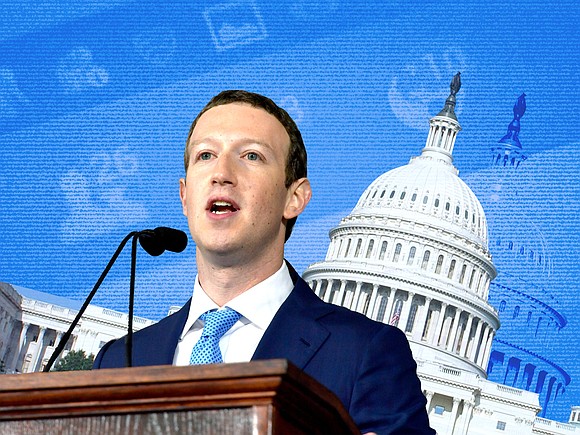What Mark Zuckerberg has to fear in testifying before Congress
CNN/Stylemagazine.com Newswire | 4/9/2018, 8:03 a.m.

Seth Fiegerman
(CNN Money) -- Facebook CEO Mark Zuckerberg is about to join a short list of chief executives from Silicon Valley who have stepped into the Capitol Hill hot seat -- with mixed success.
Zuckerberg is scheduled to testify before Congress on Tuesday and Wednesday to address data privacy issues in the wake of the Cambridge Analytica scandal.
As Zuckerberg and Facebook prepare for the hearings, there are two clear case studies for how Congress treats tech CEOs. In one, the CEO is eaten alive; in the other, he leaves the lion's den unscathed.
Tim Cook, Apple's CEO (and lately Zuckerberg's foe), charmed Senators in 2013 when he was called in to get grilled about the company's use of tax havens. By the end of the hearing, John McCain was praising Apple for its "incredible legacy" and Cook for being "a pretty tough guy."
Jerry Yang wasn't so lucky. In 2007, the then-CEO of Yahoo was hammered repeatedly by members of Congress for the company's role in providing information to the Chinese government that led to the jailing of a journalist.
When Yang admitted that Yahoo "could do better" to provide assistance to the journalist's family, then-chairman of the House Foreign Affairs Committee Tom Lantos responded: "You couldn't do less." At another point, Lantos slammed the company with a remark that could resonate at the Facebook hearing: "Much of this testimony reveals that while technologically and financially you are giants, morally you are pygmies."
The fear of being publicly excoriated appears to be widespread in the tech industry. The CEOs of Google, Twitter and Facebook resisted calls from legislators to testify over foreign nationals using social media to meddle in the 2016 election. Marissa Mayer, the former CEO of Yahoo, reportedly had to be subpoenaed by a Senate committee last year to testify over massive data breaches.
The CEOs of Google and Twitter have yet to agree to testify alongside Zuckerberg, despite an invitation from the chairman of the Senate Judiciary Committee.
"Just because you're a successful founder or CEO, or both, doesn't mean you're not human," says Bradley Tusk, a regulatory adviser for tech companies. "Being called to testify before Congress is scary. It's like being called into the principal's office, but with the whole world watching."
The trick, Tusk says, is to be as genuine as possible. "Don't make excuses, don't be evasive, don't lecture. Just explain what happened to the best of your ability," he said. "Congress likes authenticity as much as the voters do."
It's a new challenge for Zuckerberg. Like other tech CEOs, he typically prefers to speak through posts on the platform he built, as well as at launch events and employee town hall meetings. It's rare for him to be interviewed in a setting not of his own choosing.
After the data debacle last month, Zuckerberg agreed to speak with media outlets like CNN, Vox and The New York Times. He also did a press conference with reporters by phone on Wednesday. But Zuckerberg only appeared on camera once, for the interview with CNN.
More to the point: In talking with the media, Zuckerberg got to choose which outlets he'd take questions from and the timing of the interviews. It won't work that way with Congress.
"It could be a self-defining moment," says Paul Argenti, a professor of corporate communication at the Tuck School of Business at Dartmouth. "The worst-case scenario is he comes in and he is the old Mark Zuckerberg."
The old Zuckerberg was often labeled awkward and immature. He wore a hoodie to meet with Wall Street investors before Facebook went public in 2012. He also rambled and sweated profusely through an interview in 2010 about -- of all subjects -- user privacy.
Since then, Zuckerberg has carefully cultivated a public image befitting a political figure. He's appeared alongside world leaders, met with voters across the U.S., pivoted to philanthropy and weighed in on social issues.
Now his public image is about to be put to the test by actual politicians.
"Over the last few years he's had plenty of training dealing with top policymakers - including many difficult customers," says Dex Torricke-Barton, a former speechwriter for Zuckerberg and former executive communications manager for Facebook.
"Some members of Congress may relish the opportunity to trip Mark up in public," he said, "but they're likely to be disappointed."



